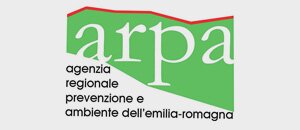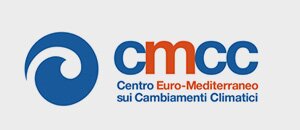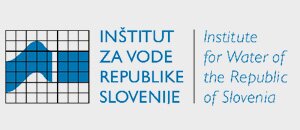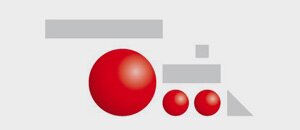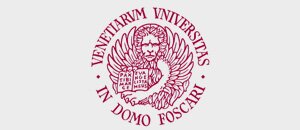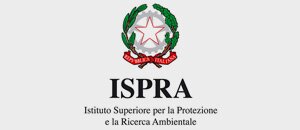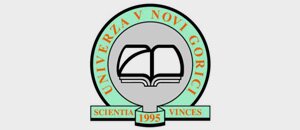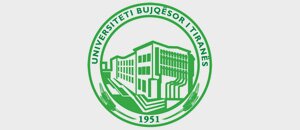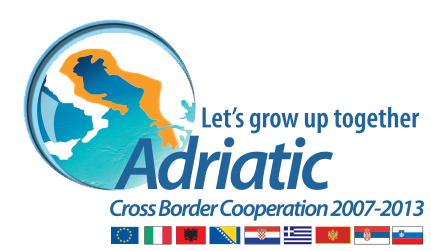
National Institute of Chemistry
Written by DEFISHGEARThe National Institute of Chemistry (NIC) was established in 1946 and is now an internationally recognized research organization in the field of chemistry and related disciplines. It has 289 employees, of whom 261 are researchers, 126 hold PhD degrees in science. In 2012 it had turnover of 14 M Euro. With its high-level research equipment such as spectrometers, ultra-high resolution microscopes, chromatography systems etc., and 17 organizational units – laboratories the institute is active in all areas of chemistry. NIC was also the first research institution in Slovenia to obtain ISO 9001 standards in December 2003.
The Laboratory for Polymer Chemistry and Technology has 17 members. Its specialty is synthesis and characterization of polymers and plastics. Sustainable, biodegradable and biobased plastics as well as plastic waste management are a long-standing area of activity of the laboratory.
Research
Basic and applied research are oriented towards fields which are of long-term importance to both Slovenia and the world: biotechnology, environmental protection, structural and theoretical chemistry, analytical chemistry, materials research, and chemical engineering, through which the institute is in line with the needs of the domestic chemical, pharmaceutical, tire, and food industries. The work of the Institute is also in line with the priority thematic areas of the 7th Framework Program of the EU, which places an emphasis on genomics and biotechnology for health, nanotechnology, quality and safety of food, as well as nutrition, sustainable development, and global change.
Education
The Institute aims to enable young researchers for work in current fields of research, as well as to groom them for leading positions in the public and private sectors. The Institute works with Slovenian universities as well as international educational institutions in order to realize these goals.
Cooperation with industry
Research is oriented towards the development of new technologies and products, which will help to ensure the long-term development of Slovenia and which are internationally relevant. Industry is an important partner to the Institute in these endeavours. There are a number of Slovenian companies with whom the Institute has entered into close long-term cooperation, as well as a number of well-regarded foreign companies. From a financial point of view, this kind of cooperation represents 20 % of the income of the Institute.
Project involvement
NIC has rich experience in international projects and is currently involved in 10 FP7 projects and 2 Transnational projects. The most important are: ANIMPOL, INNOSHADE, EAST-NMR, BIO NMR, BioChemLig, EuroLiion and EUROLIS of which Institute is the coordinator. A particularly relevant international project is PLASTiCE (Innovative value chain development for sustainable plastics in Central Europe) within the Central Europe Programme where NIC successfully serves as coordinator. Some other projects are Trans2Care (Trans-regional Network for Innovation and Technology Transfer to Improve Health Care, Slovenia-Italy cooperation) and ERA NET projects. In FP6 NIC was involved in 14 projects and 15 projects in FP5. NIC is also partner in a number of bilateral scientific programs. NIC is also founding member of three Centers of Excellence financed through ERDF funds.
Institute for Water of the Republic of Slovenia (IWRS) has been founded in the early sixties as Water Management Institute. It is a public institution, specialized for water resources management, freshwater and maritime engineering and ecological engineering. IWRS employs a multi – disciplinary group of specialists working on studies, research projects and other technical elements for implementation of the national environmental program and administrative procedures of protection, management and water use.
Institute is a leading professional body for the implementation of the Marine Strategy Framework Directive (MSFD, 2008/56/EC), Water Framework Directive (2000/60/ES), Flood Directive (2007/60/EC) and the Bathing Water Directive (2006/7/EC) for the Republic of Slovenia. IWRS has so far managed or participated in water and marine management and other projects and has experience in many European environmental programmes such as LIFE, LIFE+, PHARE and is a partner in the European Topic Centre for Inland, Coastal and Marine Water (ETC/ICM) at the European Environmental Agency (EEA).
IWRS participates in many expert working groups, related to integrated surface water management, organized by European Commission (DG ENV). One of the relevant activities includes work in the EU Task group on Marine litter. IWRS is also intensively involved in marine litter issues as ETC/ICM partner. The work of IWRS includes leading the task on preparation of marine litter indicator and Marine LitterWatch development and promotion. IWRS in collaboration with University of Nova Gorica performed first analysis of microplastic in the Adriatic region for MSFD implementation in 2011. We have gained many experiences also in performing beach litter assessment, since 2007.
Vision of IWRS is to remain the lead research and advisory institution in integrated water planning and common European water policy in the Republic of Slovenia, and will build, with the intention of applying sustainable water management, even stronger connections with related institutions and organisations.


Nova Gorica University
Written by DEFISHGEARThe University of Nova Gorica (UNG) is an independent, research oriented and student friendly university. A predecessor of the UNG was the Faculty of Environmental Sciences founded in 1995 and established as the first independent institution of higher education in Slovenia, offering international postgraduate study courses. Since its creation, UNG has systematically developed its research character, hence all of its fully employed university teachers are above all top-level researchers.
UNG offers education at seven schools in undergraduate, second and third programs. The research is conducted in six laboratories (Environmental Research, Astroparticle Physics, Organic Matter Physics, Multiphase Processes, Materials Research, and Quantum Optics) and five research centres (Atmospheric Research, Systems and Information Technologies, Wine Research, Research Centre for Humanities, and Biomedical Sciences and Engineering). The international reputation of UNG has resulted in the engagement of scientists and teachers in several successful EC-funded and other international research and educational projects. The Laboratory for Environmental Research (LRO) is currently involved in DeFishGear project.
In the area of fundamental research the activities of LRO are directed to:
- the investigation of the photochemical and microbial degradation of organic pollutants and their transfer in the environment;
- the development of experimental devices for the removal of organic compounds from aqueous matrices;
- the elaboration of new materials (based on nanoparticles) for their application in environmentally friendly technologies;
- the development of bioanalytical and laser-based methods and ecotoxicological tests for the determination of toxic compounds and their effects on the environment;
- the sustainable natural resource utilization and protection.
In the frame of DefishGear project, LRO will contribute in the analytical part where several selected persistent organic pollutants (POPs) adsorbed on macro/microplastics will be determined. Additionally, in 2015 UNG will organise the DeFishGear Summer school on microplastics.

ISPRA
Written by DEFISHGEARThe Italian National Institute for Environmental Protection and Research (ISPRA) is a governmental research institute that acts under the vigilance and policy guidance of the Italian Ministry for the Environment and the Protection of Land and Sea.

Ca' Foscari University of Venice
Written by DEFISHGEARCa’ Foscari University Venice was established in 1868 as the Royal Business College, the first educational institution in Italy to offer higher education in business and economics. Today, it is recognized as one of the best Universities in the country offering its students diverse and ample study programmes which can be distributed through the following areas: economics, languages, science and technology, and humanities Ca’ Foscari is organized into 8 departments carrying out both research and teaching, and 6 interdepartmental schools offering a selection of multidisciplinary courses.
The Summer School, the Challenge School and the Graduate School have been established to create summer courses and international exchanges, high level education programmes and doctorate research programmes, respectively. Every day, Ca’ Foscari offers its students the opportunity to live the university experience in an international environment where innovative aspects of research are applied and where new technologies and teaching methodologies are explored. Ca’ Foscari is also characterized by a varied range of cultural events and provides an effective placement system for its graduates entering the employment market. More than 3,500 students graduate from Ca’ Foscari per year. Ca’ Foscari offers a rich portfolio of international study programmes, comprising 5 first cycle degrees, 13 second cycle degrees, 2 professional master courses and 10 research doctorates.
Ca’ Foscari, currently has 116 international cooperation agreements in place, with as many institutions, in 43 countries (EU and non-EU). Ca’ Foscari University Venice is also a sustainable university. In 2010, it was the first Italian University to have participated in the Ministry for the Environment, Land and Sea “Carbon Programme”. Ca’ Foscari has successfully designed methodologies to reduce greenhouse gas emissions from its activities, ranging from energy consumption to staff mobility and from digital archives to its purchase and supply system. Ca’ Foscari organizes around 800 cultural and scientific events per year and enjoys important relations with international bodies and institutions, both in regards to educational exchange experiences for students and teachers, but also through scientific publications from individual professors, university departments and its international research centers. The university library system holds a wealth of over 1 million volumes.
Within DeFishGear project Ca' Foscari University Venice will investigate presence and distribution of micro and nanoplastics in the marine and coastal environment, as well as evaluate their impacts on marine biota (WP5), so contributing to the development of a regional strategy to reduce marine litter pollution in the Adriatic Sea according to recent EU directives.
Mediterranean Consortium
Written byThe Consorzio Mediterraneo s.c.a r.l. (Mediterranean Consortium), founded in 1996, is the technical and scientific structure of the Lega Pesca (Fishing Association) and combines 14 of the most qualified companies for co-operative research. It is formed by a co-ordinating head office in Rome and by subsidiary offices and laboratories situated at the associated co-operatives for research that are present throughout the Italian territory (Friuli Venezia Giulia, Liguria, Emilia Romagna, Latium, Apulia, Calabria, Sardinia and Sicily).
Registered at the National Registry for Research and credited at the Ministry for Agricultural Policies, the consortium collaborates with different universities, with ISPRA (The Italian National Institute for Environmental Protection and Research), CNR (the Italian National Centre for Research), FAO, ENEA (the Italian National Body for Energy and Environment), the Ministry for Labour and Welfare, the Ministry of Foreign Affairs, the European Union. It is a partner of UNIMAR, the unitary research consortium of the fishing Associations, that created a National technical and biological observatory on fishing and aquaculture within the measures foreseen by the financial instrument for fishing (European Fisheries Fund, EFF). The Consorzio operates, directly or through its partners, throughout the country, promoting studies and researches aiming at contributing to the knowledge and in-depth study of problems connected with the fishing sector, with particular emphasis on those of biological, ecological, technological, economical and training nature in order to promote the development and optimisation of fishing, fishing economy, aquaculture and coastline in Italy.
Of a particular relevance is the activity of technical and scientific support aimed at the co-operatives associated to the Lega Pesca (Fishing Association), that operate in the different compartments of the fishing economy: fishing, aquaculture, transformation, marketing. Furthermore, the consortium carries out studies and researches aimed at the development of biotechnologies, the estimation of the environmental impact related to the sea environment, the eco-compatible technological innovation, to the environmental audit for the definition of productive management practises compatible with the environment, the definition of quality standards for fishing products, the integrated management plans of the coastline, the development plans for the management of protected sea areas and scientific dissemination.

THE ARPA ER
Written byOceanographic Structure Daphne
The Oceanographic Structure Daphne is the regional reference centre for the environmental control of the coastal marine ecosystem and for the monitoring and integrated management of coastal areas (ICZM) and represents a branch of ARPA ER.
It was established by the regional authorities of Emilia-Romagna in 1977 and subsequently transferred to the Regional Prevention and Environment Agency of Emilia-Romagna (ARPAER).
The various activities involving both monitoring and research carried out by Daphne, aim to identify the factors affecting the environment and provide proper technical support to the regional and local authorities in order to protect the sea and its resources. The overall provision of services is enriched by the cooperation of the other specialized network "nodes" of the agency.
To fulfil these needs, Daphne has developed several areas of activity:
- coastal oceanography
- monitoring and studying of eutrophication processes
- monitoring of litter on the beaches and microlitter in the sea column water
- analysis of accumulation of contaminants in marine sediment
- control of radiopollution
- analysis of bioaccumulation of micropollutants in marine organisms
- study and distribution of mucilages aggregates
- study and control of benthic communities
- ecotoxicology
- harbour dredging monitoring and characterization of discharge areas
- specialised laboratory activity
- particle size analysis in sediments
The Structure has use of the Oceanographic vessel "Daphne II" and of land laboratories, together with the laboratory network of ARPA local departments. It is located in the same structure as the Centre for marine research (CRM) of Cesenatico, which is the national reference laboratory for marine biotoxins. Marine activities involve a high density network of monitoring stations down the Emilia-Romagna coastline. Sampling and measuring stations distributed along the coastal zone from the Po Delta to Cattolica, up to a distance of 20 km offshore, are monitored weekly.
With the aim to provide a detailed description of the health of the marine-coastal ecosystem, great care is given to the development of:
- methods and criteria for the classification of environmental quality
- technology focused on system optimisation of control and study
- research into anoxic conditions and their effects on benthic fauna
- communication, raising of awareness
The Euro-Mediterranean Center on Climate Change is a non-profit research institution established in 2005, with the financial support of the Italian Ministry of Education, University and Research. CMCC manages and promotes scientific and applied activities in the field of international climate change research. The Center has been fully operative since 2006.
The CMCC network structure has offices in Lecce, Bologna, Capua, Milan, Sassari, Venice, Viterbo, and Benevento. It involves and links private and public institutions jointly investigating multidisciplinary topics related to climate science research.
CMCC has been founded with the main goal of establishing a Center of excellence focused on integrated study of climate change related topics in Italy. CMCC represents at the national and international scale, an institutional point of reference for decision makers, public institutions, as well as private and public companies seeking technical-scientific support.
CMCC’s expertise and approach to climate science is strengthened by its capacity to develop research projects, which contribute to a national network of excellence. CMCC also collaborates with the best international centers specialized in advanced and applied research on climate change. Thanks to its networked structure, CMCC brings together highly qualified experts/professionals from different climate research areas in a single unique institution. The workflow within the CMCC network fosters the integration of technological resources and skills needed to develop a global and extensive approach to climate research including: mathematics, physics, economics and computer science. CMCC collaborates with experienced scientists, economists, and technicians, which work together in order to provide full analyses of climate impacts on various systems such as agriculture, ecosystems, coasts, water resources, health, and economics. CMCC also supports policymakers in setting and assessing costs, mitigation, and adaptation policies.
Further information can be found at www.cmcc.it

Among other, the aim of DeFishGear project is to develop regional approach in monitoring and assessment of microplastic (plastic particles in size < 5 mm) and nanoplastic (<0,3mm) pollution, as well as identification of impacts on marine biota by using commercial fish species. Currently, the DeFishGear team is working on literature review and establishment of common data base.

The Institute of Oceanography and Fisheries (IOF) is a scientific public institution founded in 1930 as the first national scientific and research institution dealing with research of the sea. It is Croatian National Reference Centre for the marine research with almost 100 employees of whom more than 50 are PhD experts in different field of research. Since the founding scientific activity of the Institute is multidisciplinary and covers research in the fields of biological, chemical and physical oceanography, sedimentology, and fisheries biology and aquaculture. The IOF research vessels Bios and Navicula are used for oceanographic and fisheries research activities, designed specifically for surveys and data collection for both coastal and open-sea waters.
The basic direction in the IOF work is represented by fundamental scientific research, which is mostly conducted through projects of continuing research activities funded by the Croatian Ministry of Education and Sports. The aim of this research is extending the knowledge of the structure of different plant and animal populations in the Adriatic Sea, as well as their relation to various abiotic and biotic factors important for the balance of the Adriatic ecosystem, and the definition of coast-open sea interdependence, in order to recognize possible changes resulting from climatic and anthropogenic factors. The basic mechanisms of action of population dynamics, biology and ecology of marine organisms are also under research, especially the most economical fish species and edible invertebrates (crustaceans and cephalopods), in order to determine the biologically acceptable level of their exploitation.
From the beginning, the scientists at the IOF have published over 1700 scientific and professional papers in both domestic and foreign publications. The published papers have included expedition reports, hydrographic studies, dynamic properties of the marine eco-system, description of flora and fauna, ecological research (in particular, primary and secondary production), fisheries research, advancements in fishing and artificial breeding (in relation to the Adriatic and Mediterranean, including coastal and open seas), as well as man’s impact on the sea. Apart from basic scientific research, IOF conducts a number of applied research projects for environmental protection, aquaculture and the economy in general, through which a large part of scientific knowledge and results finds a practical application.
A part of the IOF actions is dedicated to pedagogical activities, because the Institute is entrusted with the organization and execution of teaching at the Center for the Study of the Sea at the University of Split. The Institute has, in collaboration with University of Split and University of Dubrovnik, founded and organized a Ph.D. in Applied Science on the Sea, as well as doctoral studies in Oceanology with University of Zagreb and Rudjer Boskovic Institute. Within these sectors, the Institute, in collaboration with the Government of the Kingdom of the Netherlands, for ten years regularly held an international course in fishery science, which was unfortunately discontinued in early 1991 with the beginning of the war.
Very important is the publishing activity, as of 1932. IOF publishes a scientific journal “Acta Adriatica” through which it makes the exchange with about 350 domestic and international scientific publishers.
International cooperation is developed on various grounds. This activity was extremely important since the foundation, so the employees was actively engaged in the work and making of many international organizations, committees and programs for sea exploration, especially in the Mediterranean, where the Institute has had and still has a very important role (CIESM – International Commission for Scientific Research of the Mediterranean, GFCM – General Fisheries Council for the Mediterranean, EU-MEDITS, IOC – Intergovernmental Oceanographic Commission, WMO - World Meteorological Organization, WHO - World Health Organization, OECD - Organization for Economic Cooperation and Development, UNEP - the United Nations Environment Program).
Within the FAO-AdriaMed, the Institute was named the "focal point" institution at the level of countries of the eastern Adriatic, and was named responsible for co-operation with the IOC by Republic of Croatia. In the past years, the largest part of international cooperation has developed through bilateral cooperation (Italy, France, USA, Germany, United Kingdom), while in recent years an increasing part of international cooperation takes place through a variety of multidisciplinary projects of the EU, particularly through regionaly based projects.





